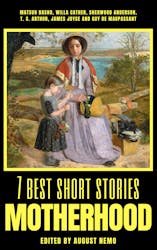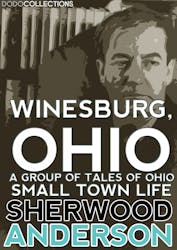Dodo Collections brings you another classic from Sherwood Anderson, ‘"Poor White".
It is the story of an inventor, Hugh McVey, who rises from poverty on the bank of the Mississippi River. The novel shows the influence of industrialism on the rural heartland of America.
Hugh McVey was born in a little hole of a town stuck on a mud bank on the western shore of the Mississippi River in the State of Missouri. It was a miserable place in which to be born. With the exception of a narrow strip of black mud along the river, the land for ten miles back from the town - called in derision by river men "Mudcat Landing" - was almost entirely worthless and unproductive. The soil, yellow, shallow and stony, was tilled, in Hugh's time, by a race of long gaunt men who seemed as exhausted and no-account as the land on which they lived. They were chronically dis-couraged, and the merchants and artisans of the town were in the same state. The merchants, who ran their stores - poor tumble-down ramshackle affairs - on the credit system, could not get pay for the goods they handed out over their counters and the artisans, the shoemakers, carpenters and harnessmakers, could not get pay for the work they did. Only the town's two saloons prospered. The saloon keepers sold their wares for cash and, as the men of the town and the farmers who drove into town felt that without drink life was unbearable, cash always could be found for the purpose of getting drunk.
Anderson was born on Sept. 13, 1876, in Camden, Ohio. He never finished high school because he had to work to support his family. By 1912, he was the successful manager of a paint factory in Elyria, Ohio, and the father of three children by the first of his four wives. In 1912, Anderson deserted his family and job. In early 1913, he moved to Chicago, where he devoted more time to his imaginative writing. He became a heroic model for younger writers because he broke with what they considered to be American materialism and convention to commit himself to art.
by their own limitations.
















